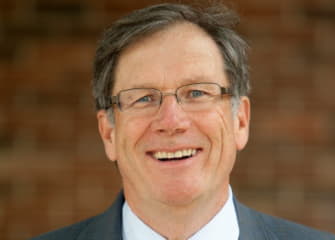
Francis Kirley
Click here for Part I, Part III & Part IV
Francis Kirley heads Nexion Health, one of the largest nursing home chains in the country. His journey to the top has rarely been easy but always self-made and eventful.
He first fashioned a “fabulous childhood” out of being an orphaned teenager, started work at a pharmacy and put himself through pharmacy school, and became an interim administrator of Martha’s Vineyard Hospital when just 27. Kirley went on to business school, and turned a job loss into exciting and successful entrepreneurship.

“I got to Martha’s Vineyard because a good friend of mine bought the stamp to send my resume to Martha’s Vineyard to apply as a director of pharmacy position,” Kirley recalled in an interview with citybizlist’s Edwin Warfield, underplaying his own proactive role.
In a career spanning over three decades in healthcare, Kirley has learned to be “leaner, meaner and more efficient,” in order to survive. That philosophy has served Nexion well, besides positioning it well for the future.
“We’re looking at acquisitions on a one-by-one basis. Some of our landlords, Omega Healthcare has talked to us about other possibilities. We will add assets that bring synergy and a creative potential to the financial viability. I’m excited for the next five years,” Kirley said in the interview.
As we evolved in Integrated, it was a cost reimbursement model that was developed and so in the late 1990s skilled nursing facilities was going to go to a perspective reimbursement model and so everything that we acquired we could easily make money because everything was cost plus. Well, in 1996 through 1999, we were going to have to go to a perspective payment where we would take the first share of 25% of the national average and 75% of your individual rate and over the four years get down to a new prospective rate and that was dramatic for Integrated and they struggled financially to do that because they had built this cost-driven model of resources, and by that I mean they owned the pharmacy company, they owned the rehab company, they owned all these resources that charged a lot of money to the skilled nursing facility because you got paid costs. It didn’t matter what the cost was. That model changed that you had to be leaner, meaner and more efficient. In 1999, they restructured and I was part of that restructuring and decided to move on.
EDWIN WARFIELD: Nexion Health was founded in 2000. You had left the debacle of Integrated Health and Health South. What was your vision for Nexion Health?
FRAN KIRLEY: What I learned though was I knew how to be a leaner, meaner quality provider and so I left Integrated in 1999 and started Nexion Health, which is a company that I founded and still the CEO of, was that I think I had a vision…that I could be a fabulous quality provider and be yet financially viable, and that our company today is driven by quality.
We are a healthcare company and providing healthcare is our business and so we need to do that exceptionally well and we’ve done that very well over the 16-year history of Nexion, won all kinds of awards and I can talk about that in a few minutes. The vision was, let’s take our quality model and how do we make it leaner and more efficient financially to be successful and so I was able to convince a couple of investors called the Litchfield Group out of Litchfield, Connecticut, who are owners of 45 nursing homes that I operated for Integrated and I had a relationship with them and went to them and said that I think Integrated is not going to be around. They have their own financial problems. I could be a nice fallback position for you. They were able to come to a relationship where they invested $2 million for ownership in Nexion and over the 2000 to 2002, we began to slowly and surely tried to acquire assets and so our first assets were in Illinois.
EDWIN WARFIELD: In 2001, you entered a master lease agreement covering 17 skilled nursing facilities in Texas that were subject to bankruptcy proceedings of Sun Healthcare Group and Mariner Post-Acute.
FRAN KIRLEY: We got some management agreements and we bought a building out of bankruptcy in Rockford, Illinois, paid $350,000 in bankruptcy, operated for three years, sold it for $350,000 and never made a dime, but what it gave me was the ability to say to the real estate investment trust, to investment bankers that I was an owner operator because they would come to me and say Fran, well, you’ve got money now, but you don’t operate anything.
Well, I had money and now I operated something. I was ultimately able to get a real estate investment trust, Nationwide Health Properties, to give me the opportunity to pick up in 2001, 21 properties in Texas that they were basically taking back because they were all in bankruptcy with three public companies and so that was really like Nexion all of a sudden went from being one building, two buildings, to being 22 buildings back in 2002, and so we are on the map. We took those assets.
We still run some of those assets and basically put in our quality model, simple approach to delivering quality care and yet be financially focused and what we have discovered and what we consistently believe today is we have to mentor our administrators. They may be social workers, nurses, whatever, they come from a good social clinical background, but they don’t have the financial understanding of how to run a business, and as I say to them sometimes, I am giving you the keys to a four to five to ten million dollar business and I want you to run it.
We put up an infrastructure that is not micromanaging but what I call mentoring managing, where we mentor them, develop them, pay attention to their skill set, enhance their skill set, make sure that we adhere to the quality side of the business because if you don’t have quality you can’t be financially successful, so that was our approach as how we got Nexion off the ground. Our investors ultimately stepped up for another million dollar round and with an option to again own additional 10 percent of the company and they stayed with Nexion to 2006 when we worked a transaction with them to take them out of our company and they sold their assets to a public real estate investment trust and I got the shares back from the company. It has worked out to be a good investment, good financial resources, committed in quality and we are successful with those assets out of the box.
Connect with Fran on LinkedIn
Sponsored by:
Founded in 1993, WMS Partners is the only independent multi-family office in the Baltimore area that isn’t associated with a brokerage firm, bank or trust company. Our team of approximately 50 professionals and 14 owners spanning three generations assists in the direction of our client’s financial goals and objectives and oversees in excess of $3 billion in assets.
As our client’s advocate and central point for their financial affairs, we work pro-actively with service providers, including accountants, attorneys, consultants, insurance professionals and philanthropic advisors. We are large enough that we provide exposure to many unique ideas and strategies in the investment, estate, tax, financial advisory and risk management arena; but small enough to provide discreet, pro-active individualized guidance.


Edwin Warfield, CEO of citybizlist, conducts the CEO Interviews.
If you're interested in reaching CEOs, please contact edwin.warfield@citybuzz.co
Connect on LinkedIn



































